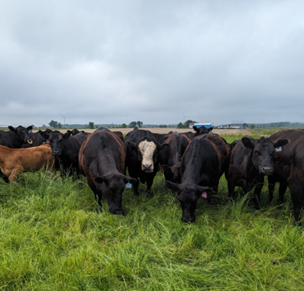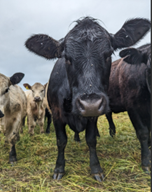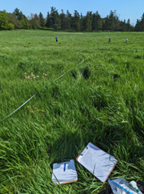
The Challenge
Project Overview
Our study involved the collection of soil, fecal, surface water, and groundwater samples from nine beef cattle farms located in Southern Ontario from 2022 – 2024. Samples were analyzed for zoonotic pathogens including E. coli, Campylobacter, Cryptosporidium, and Giardia. While this project focuses on the effect of grazing type on pathogen presence, we also collected information on other farm practices and qualities that may impact animal and environmental health outcomes (eg. cattle type, age, feed type, number of animals present). This study provides an important opportunity to increase understanding of grazing management as a strategy to reduce pathogen presence on farms, thereby improving animal health, reducing human health risk, and consequently limiting the need of pharmaceutical interventions on farms.
Publications
Area of Research
Funding By
Food From Thought
When
Team Members
Brandon Spoja
Ilya Law
Dr. Sejin Cheong
Erin Becker
Erica Hollman
Martha Yiridoe
Abbey Robertson
Katrina Kobal
William Coleman
Partners and Collaborators
Dr. Nicole Ricker
Dr. Charlotte Winder
Dr. Claire Jardine


